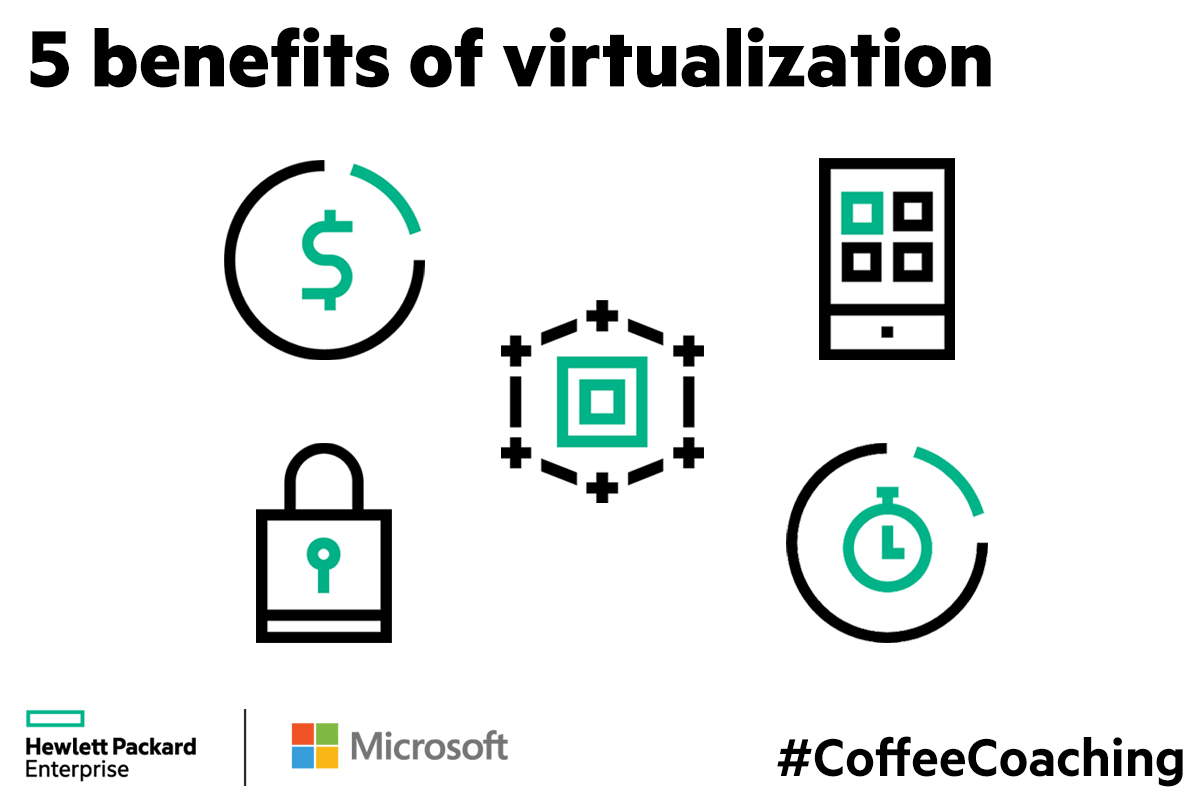The Benefits of Server Virtualization
Server virtualization has revolutionized the way businesses manage their IT infrastructure. By abstracting the physical hardware and creating virtual instances, organizations can optimize their resources, improve scalability, and reduce costs. In this article, we will explore the numerous benefits of server virtualization and how it can give your business a competitive edge.
Enhanced Efficiency
One of the key advantages of server virtualization is the enhanced efficiency it brings to your IT operations. By consolidating multiple physical servers into virtual machines, you can maximize the utilization of your hardware resources. This means that you can run multiple applications and operating systems on a single physical server, eliminating the need for separate machines for each task.
Cost Savings
Implementing server virtualization can lead to significant cost savings for your organization. By reducing the number of physical servers required, you can save on hardware costs, power consumption, and cooling expenses. Additionally, virtualization allows for better resource allocation, ensuring that you are using your infrastructure to its full potential.
Improved Scalability
Server virtualization provides unmatched scalability for your IT environment. With virtual machines, you can easily add or remove resources as needed, without the need for complex hardware installations. This flexibility allows your business to quickly adapt to changing demands and scale up or down as required, ensuring that your IT infrastructure can support your growth.
Enhanced Disaster Recovery
Disaster recovery is a critical aspect of any business continuity plan. Server virtualization simplifies the process of disaster recovery by creating backup copies of virtual machines. These copies can be easily restored onto different hardware in the event of a failure, minimizing downtime and ensuring business continuity.
Increased Flexibility
Virtualization offers increased flexibility in managing your IT infrastructure. With virtual machines, you can easily migrate workloads between physical servers without disrupting operations. This allows for seamless maintenance, load balancing, and improved resource allocation. Additionally, virtualization enables you to create isolated testing environments, reducing the risk of impacting your production environment during software or application updates.
Enhanced Security
Server virtualization enhances the security of your IT infrastructure. By isolating applications and workloads within virtual machines, you can minimize the risk of unauthorized access and data breaches. Additionally, virtualization allows for the implementation of robust security measures, such as virtual firewalls and intrusion detection systems, further safeguarding your critical data.

Server virtualization offers numerous benefits for businesses of all sizes. From enhanced efficiency and cost savings to improved scalability and security, virtualization can transform the way you manage your IT infrastructure. By embracing server virtualization, you can stay ahead of the competition, optimize resource utilization, and ensure the smooth operation of your business. the
Frequently Asked Questions about Benefits of Server Virtualization
1. What is server virtualization?
Server virtualization is the process of creating multiple virtual servers on a single physical server, allowing for better resource utilization and increased efficiency.
2. What are the main benefits of server virtualization?
The main benefits of server virtualization include:
Cost savings on hardware and energy consumption
Improved server performance and availability
Easier server management and scalability
Reduced downtime and faster disaster recovery
3. How does server virtualization help save costs?
By consolidating multiple servers onto a single physical server, server virtualization reduces the need for additional hardware, resulting in cost savings on equipment, maintenance, and energy consumption.
4. Can server virtualization improve server performance?
Yes, server virtualization can improve server performance by allowing for better resource allocation and optimization. Virtual servers can be dynamically adjusted to meet changing demands, ensuring efficient utilization of resources.
5. Does server virtualization make server management easier?
Absolutely! Server virtualization simplifies server management by providing centralized control and administration of virtual servers. This eliminates the need for physical server maintenance and allows for easier provisioning and deployment of new virtual machines.
6. How does server virtualization enhance server availability?
Server virtualization enhances server availability through features such as live migration and high-availability clustering. These technologies enable virtual servers to be moved or restarted on different physical servers without service interruption, ensuring continuous availability.
7. Can server virtualization help with scalability?
Yes, server virtualization enables easy scalability by allowing for the creation of new virtual servers as needed. It eliminates the need for purchasing and configuring new physical servers, making it faster and more cost-effective to scale up or down.
8. Does server virtualization reduce downtime?
Server virtualization can significantly reduce downtime by providing features like live migration and fault tolerance. These features allow virtual servers to be migrated or automatically restarted on other physical servers in case of hardware failures, minimizing downtime and ensuring business continuity.
9. How does server virtualization improve disaster recovery?
Server virtualization improves disaster recovery by enabling quick and efficient restoration of virtual servers from backups or replicas. Virtual machines can be easily replicated and moved to alternate locations, speeding up the recovery process and reducing data loss.
10. What are the potential challenges of server virtualization?
While server virtualization offers numerous benefits, it can also present challenges such as increased complexity, potential performance bottlenecks, and the need for specialized virtualization management tools. However, these challenges can be effectively addressed with proper planning and implementation.




